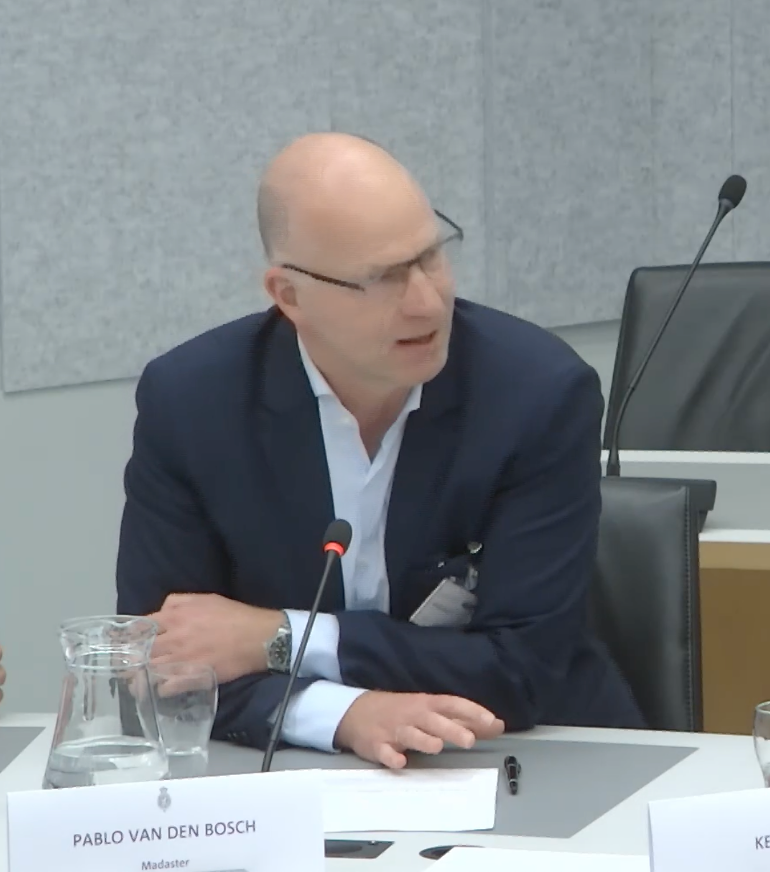CITY DEAL: MUNICIPALITIES, GOVERNMENT AND MARKET PARTIES PROVIDE IMPULSE TO CIRCULARITY AND CONCEPTUAL CONSTRUCTION
The Netherlands aims to have a fully circular economy by 2050 and to halve its current primary raw material use by 2030. Moreover, CO2 emissions must be reduced by 49% by 2030, compared to 1990 levels. At the same time, the country is facing an enormous construction task. In the coming years, one million new homes need to be built to meet the housing demand.
These two tasks can reinforce each other if they are addressed in conjunction. Because the construction sector uses 40% of all the raw materials applied in the Netherlands and causes 40% of nationally emitted CO2, sustainability gains can be achieved through smart circular and conceptual construction methods, without having to sacrifice the pace of construction or the affordability of housing. In fact, construction could even be accelerated as climate ambitions are achieved more rapidly. The Dutch Government, a number of municipalities, provinces, private parties and knowledge institutes are therefore joining forces in the Circular City Deal (City Deal Circulair) and Conceptual Construction (Conceptueel Bouwen) to reinforce their joint ambitions.
CIRCULAR CITY DEAL AND CONCEPTUAL CONSTRUCTION
It is the ambition of the partners in the City Deal, which was launched on 17 December of last year, to turn the construction sector into a driving force for the circular economy. To achieve this ambition, many changes are needed over the coming years in the way of construction methods and material use. The City Deal aims to show that circular and conceptual construction can contribute to housing affordability while accelerating the progress on the construction task — partly due to the many innovations in building products and processes that this deal involves. Together, partners will work on various construction systems, with a focus on disassembly and bio-based construction. New valuation methods are also being sought to achieve affordability and financing of such construction systems. Due to the diversity of various parties in the City Deal, individual ambitions are being translated into joint projects and objectives. In this way, the construction sector contributes to the circular economy, while innovation and sustainable building techniques contribute to a valuable building stock.
PARTNERS IN THE CIRCULAR CITY DEAL AND CONCEPTUAL CONSTRUCTION ARE:
Leiden, The Hague, Almere, Utrecht, Leeuwarden, Nijmegen, Amersfoort, Dordrecht
- Provinces: South Holland, Flevoland
- National government: Ministries of Agriculture, Nature and Food Quality (LNV), the Interior and Kingdom Relations (BZK), Infrastructure and Water Management (I&W)
- Parties in the private sector: Dura Vermeer, Van Wijnen, BAM, Bouwfonds Property Development (BPD), ASN Bank, Madaster Services Netherlands, Sustainer Homes, Sweco Nederland, ITMOOS, New Horizon, Urban Climate Architects, Finch Buildings, Cepezed projects, Rc Panels
- Knowledge institutes: Utrecht University (Urban Futures Studio), Amsterdam University of Applied Sciences, Delft University of Technology (The Green Village) and the University of Applied Sciences Utrecht
- Network organisations: Platform31, Cirkelstad, De Bouwcampus, Stichting C-creators, iCircl, Netwerk Conceptueel Bouwen, Holland Houtland, Dutch Green Building Council
- Aedes (national organisation of housing associations)
This collaboration between municipalities, national government and market parties was launched on 17 December 2020. Participants have emphasised the importance of their collaboration in this video message (in Dutch). There is still room for new participants joining the City Deal (registration closes 1 March 2021).
For more information on the City Deal, see AgendaStad.nl.
ABOUT CITY DEALS
City Deals are thematic collaborations between municipalities, national government, private sector parties, knowledge institutes and other organisations, focusing on innovative solutions for complex urban tasks, on the basis of equality. The collaboration stimulates understanding, decompartmentalisation and the exchange of knowledge. The City Deal concept originated five years ago from the ‘Agenda Stad’ (city agenda) programme of the Ministry of the Interior and Kingdom Relations (BZK). To date, 25 City Deals have been signed on various multidisciplinary issues, such as electric shared mobility, customisation in the social domain, climate adaptation, and urban food policy. City Deals have been identified as powerful examples of governance innovation in various studies, including those by PBL Netherlands Environmental Assessment Agency and the Netherlands School of Public Administration (NSOB). In 2019, the City Deal concept was awarded a Best Practices certificate at the European Public Sector Awards. Read more about City Deals.



